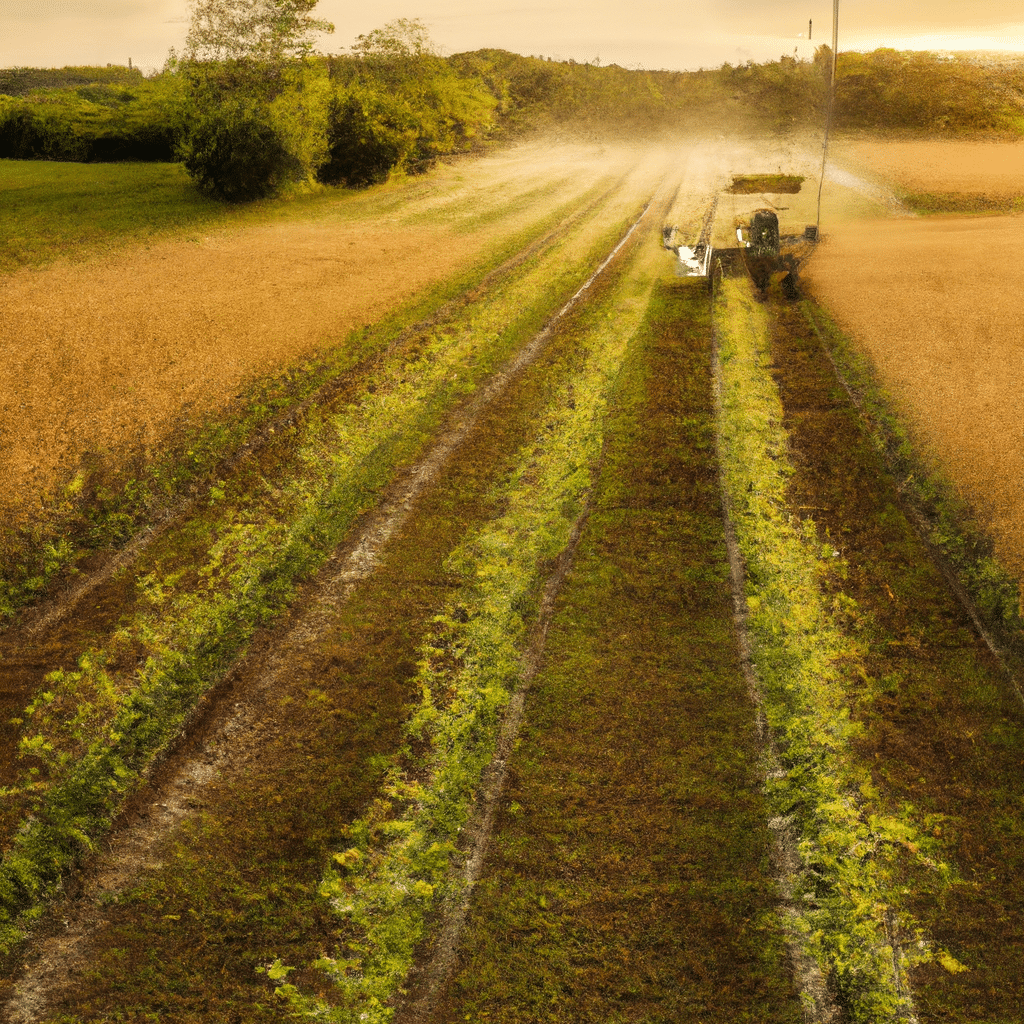In recent years, the agricultural industry has seen a significant shift towards more sustainable and eco-friendly farming practices. With the increasing awareness of environmental issues and the need to ensure food security for future generations, farmers and researchers have been working tirelessly to develop innovative techniques and technologies that minimize the negative impact of agriculture on the planet. This article will explore some of the most groundbreaking and game-changing eco-friendly farming innovations that are revolutionizing the agricultural landscape.

Sustainable Soil Management: Building a Strong Foundation for Agriculture
Healthy soil is the backbone of any successful farming operation. Traditional farming practices, such as excessive tilling and the overuse of synthetic fertilizers, have led to soil degradation and a loss of valuable nutrients. However, eco-friendly farmers are now turning to sustainable soil management techniques to restore and maintain the health of their soil.
One such technique is cover cropping, where farmers plant specific crops during the off-season to cover the soil. This helps to prevent erosion, improve soil structure, and increase organic matter content. Additionally, cover crops can also act as natural pest control, reducing the need for harmful chemical pesticides.
Another eco-friendly soil management practice is the use of compost and organic fertilizers. By recycling organic waste and converting it into nutrient-rich compost, farmers can improve soil fertility without relying on synthetic chemicals. This not only reduces environmental pollution but also enhances the quality and flavor of crops.
Precision Agriculture: Harnessing Technology for Optimal Efficiency
Advancements in technology have transformed the way agriculture is conducted. Precision agriculture, also known as smart farming, utilizes cutting-edge technologies such as GPS, remote sensing, and data analytics to optimize farming operations. This results in significant improvements in resource efficiency, productivity, and environmental sustainability.
One key aspect of precision agriculture is precision planting. By utilizing GPS technology and advanced seeders, farmers can precisely plant seeds at the optimal depth and spacing, ensuring uniform germination and minimizing seed waste. This not only increases crop yields but also reduces the need for excessive water and fertilizer application.
Furthermore, remote sensing technologies, such as drones and satellite imagery, provide farmers with valuable insights into crop health, soil moisture levels, and pest infestations. This enables them to take targeted actions, such as applying fertilizers or pesticides only where necessary, reducing environmental impact and saving costs.
Hydroponics and Vertical Farming: Growing Food in Limited Spaces
As urbanization continues to encroach upon agricultural lands, farmers are faced with the challenge of producing food in limited spaces. Hydroponics and vertical farming offer innovative solutions that allow crops to be grown in urban environments, making efficient use of land, water, and energy resources.
Hydroponics is a soil-less farming technique where plants are grown in nutrient-rich water solutions. By providing plants with the precise amount of nutrients they need, hydroponics eliminates the need for excessive fertilizers and reduces water consumption. Additionally, hydroponic systems can be set up vertically, maximizing the use of available space.
Vertical farming takes the concept of hydroponics a step further by stacking layers of crops vertically in controlled environments such as climate-controlled buildings or shipping containers. This method allows for year-round cultivation, reduces the need for pesticides, and drastically minimizes water usage compared to traditional farming methods.
Agroforestry: Harnessing the Power of Trees in Agriculture
Agroforestry is an innovative farming practice that integrates trees and crops together, creating a symbiotic relationship that benefits both the environment and the farmer. By strategically planting trees alongside crops, farmers can enhance soil fertility, conserve water, and provide habitat for beneficial insects and birds.
One example of agroforestry is alley cropping, where rows of trees are planted in between crop rows. The trees provide shade, reducing temperature stress on crops, and their roots help to stabilize the soil and prevent erosion. Additionally, the fallen leaves act as natural mulch, enriching the soil with organic matter.
Agroforestry systems also contribute to the sequestration of carbon dioxide, helping to mitigate climate change. Trees absorb carbon dioxide from the atmosphere and store it in their biomass, reducing greenhouse gas emissions and promoting a healthier environment.
Conclusion
The agricultural industry is undergoing a remarkable transformation with the adoption of eco-friendly farming innovations. From sustainable soil management practices to precision agriculture technologies, these advancements are not only benefiting farmers but also safeguarding the environment for future generations. As we continue to prioritize sustainability and resilience in agriculture, these game-changing innovations will play a pivotal role in ensuring a greener and more sustainable future for our planet. Embracing these eco-friendly practices is not only an investment in the well-being of our ecosystems but also a commitment to a more prosperous and sustainable agricultural sector.



